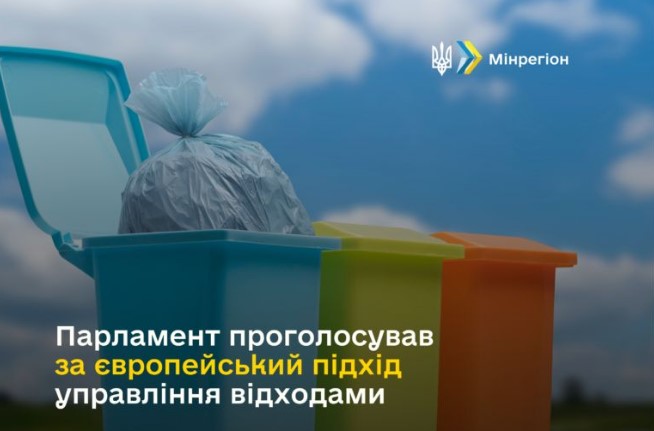
The Verkhovna Rada of Ukraine adopted in the second reading a bill on waste management (№2207-1d), which introduces a modern European approach to waste management and aims to address the problem of mass landfill.
This was announced by the Minister of Development of Communities and Territories of Ukraine Oleksiy Chernyshov.
The adopted bill 2207-1-d establishes basic European principles and standards, such as the hierarchy of waste management, ‘polluter pays’, extended producer responsibility. It sets new requirements for bringing old landfills in line with environmental standards or closing them down. The document also launches mechanisms for the construction of recycling facilities in the country. In particular, regarding construction and demolition waste, which is extremely relevant in wartime. As a result, Ukraine has received an instrument to become cleaner,’ – said Minister Chernyshov.
The head of the Ministry of Regional Development also noted that after the adoption of this bill, the Government should develop more than 6 sectoral bills and more than 20 regulations. Currently, the Ministry of Regional Development and the Office for Support of Reforms are actively involved in the development of bills ‘On Packaging and Packaging Waste’, ‘On Batteries and Accumulators’, ‘On Waste Electrical and Electronic Equipment’ and others.
It should be noted that the draft law №2207-1d is designed to introduce modern European approaches to waste management, legislative and financial incentives to increase the volume of their processing and reuse. It also creates an opportunity for extended producer responsibility for certain types of waste, which will allow full financing of their collection and processing at the expense of producers, strengthens control over hazardous waste management and lays the foundation for the creation of a waste management information system.
In addition, the document provides for the introduction of European-level waste management planning (national, regional and local waste management plans and programs) and the European waste management hierarchy, where the priority is to prevent their generation, reuse and recycling.

